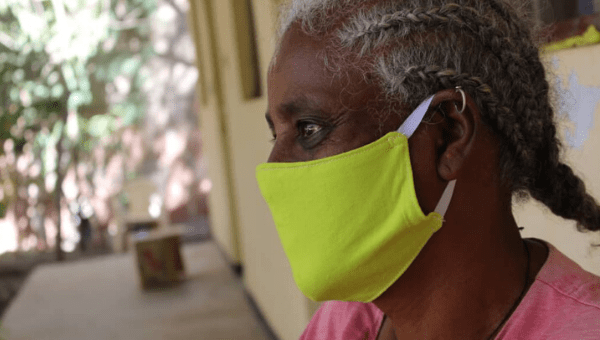
In developing countries, most people live day-to-day in the informal economy, earning enough money to buy food and essentials, but with no savings or safety net. The restrictions on movement that were imposed to prevent Covid-19 spreading have been catastrophic for many people, leaving them hungry and in fear of losing their homes because of an inability to pay rent.
Responding to these communities in this pandemic involves more than just providing them with masks and sanitiser. The immediate threat to their health and wellbeing is caused by lack of food and income.
Irish Jesuits International has been working to deliver funding to communities who are in need of support to prevent them becoming ill, or suffering as a result of their country’s Covid-19 restrictions. So far, we have funded emergency response programmes in many countries, including in Kangemi Slum and Kakuma Refugee Camp in Kenya, in Yambio in South Sudan, in refugee settlements in Adjumani, Uganda, and in Lebanon, as well as in communities in Ethiopia and Tanzania.
Funding has not just provided sanitation essentials but food, and support to help people stay in their homes. Some emergency programmes have provided employment to women, who use their skills to make reusable face masks for their community, giving them not just income but also dignity. Outreach workers have provided support to families and individuals by staying in contact to give psychosocial support through WhatsApp groups, providing information and education by radio as well as making socially-distanced calls to provide supplies and have a conversation in person, where this is permitted. Serving communities on the margins involves more than a material response.
We will continue to work with our funding partners Misean Cara and private donors to support emergency response programmes for other communities in crisis. But we need your help.
Your support will help to provide a community in need with food, essential healthcare and sanitation supplies as they deal with the danger not only from the risk of Covid-19 but also from the measures taken to mitigate it.


